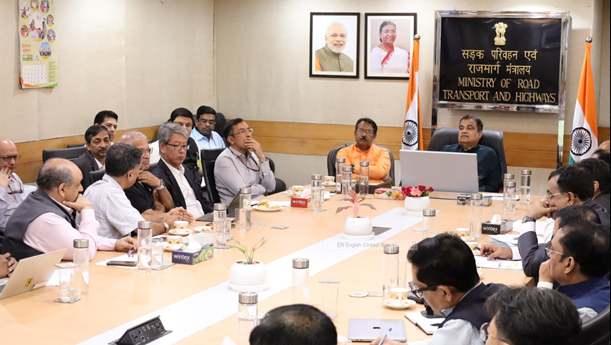Minister for road transport and highways Nitin Gadkari has asked automobile manufacturers to look into ways of making ethanol and flex fuels more acceptable to the public, citing Brazil’s successful integration of biofuels in its transportation systems.
The minister also discussed how a shift to biofuels from fossil fuels would help India become #AtmaNirbhar (self-reliant), reduce pollution, cut imports of fossil fuels, and help consumers by lowering fuel prices — all while benefiting farmers.
In December 2021, the government advised automobile manufacturers to start production of flex fuel vehicles and flex fuel strong hybrid electric vehicles (FFV-SHEV) complying with BS-6 emission norms. An electrified flex fuel vehicle provides the option of advanced chemistry battery along with a flex fuel engine.
Gadkari had said then that guidelines for the use and development of flex fuel engines and vehicles would be formulated in line with the government’s vision to reduce crude oil imports and the policy on promoting ethanol as a transport fuel. These vehicles are capable of running on a combination of 100% petrol or 100% bioethanol and their blends, along with strong hybrid electric technology in the case of FFV-SHEVs.
However, the segment is yet to pick up. In August 2023, Toyota Kirloskar Motor unveiled the prototype of the world’s first BS-6 electrified flex fuel vehicle.
Tags: Ethanol, Fossil Fuels, SIAM



Recent Posts
Sea cruise ships can now connect to shore power in Amsterdam
Corvus Energy partners with HD Hyundai Mipo for AiP on new green product tanker design.
KR and HD Hyundai Heavy Industries Team Up to Develop a Very Large Ethane Carrier
HD Hyundai Leads Maritime Decarbonization at Nor-Shipping 2025
World’s Largest Green Hydrogen Plant Reaches 80% Construction Completion Across All Sites
Wärtsilä to Power USA’s First All-Electric High-Speed Ferries in San Francisco Bay
ABS and Pusan National University Chart a Course for Liquid Hydrogen Shipping
RIC Energy and Siemens Partner to Advance Green Hydrogen and E-Fuels Projects in Spain